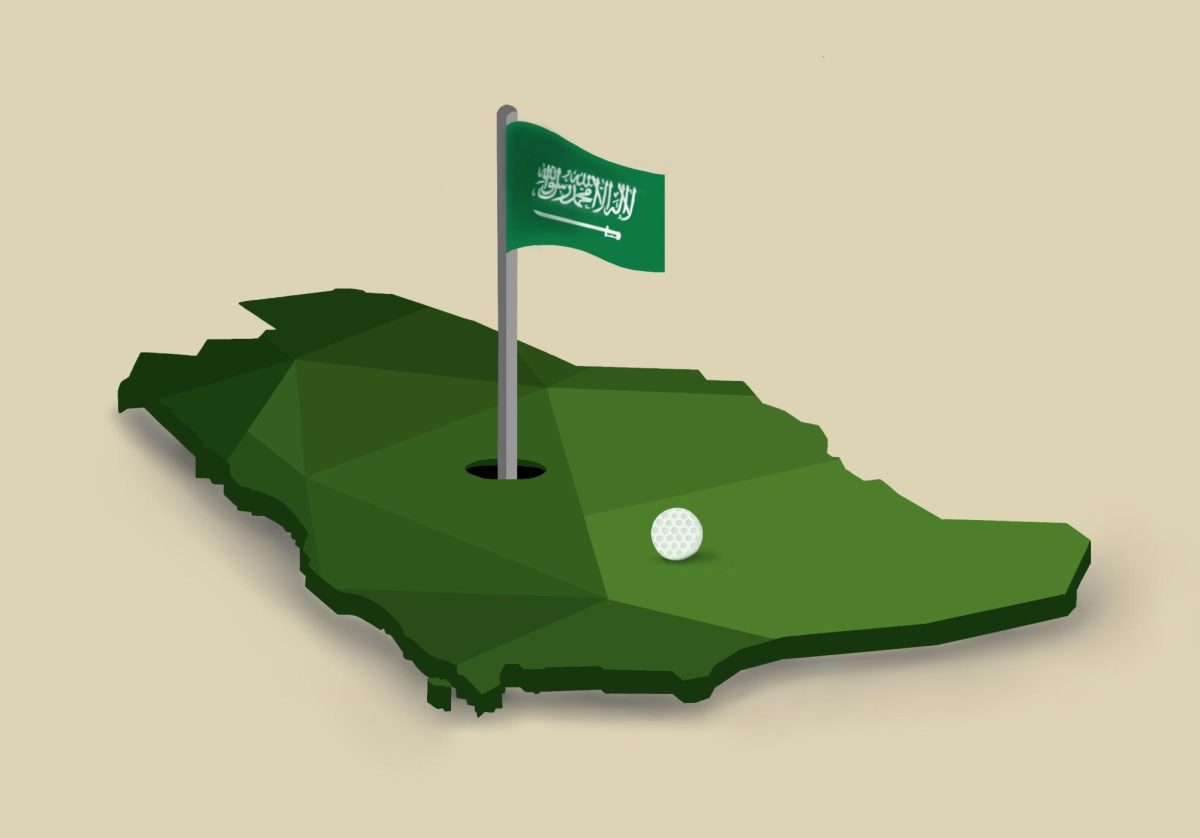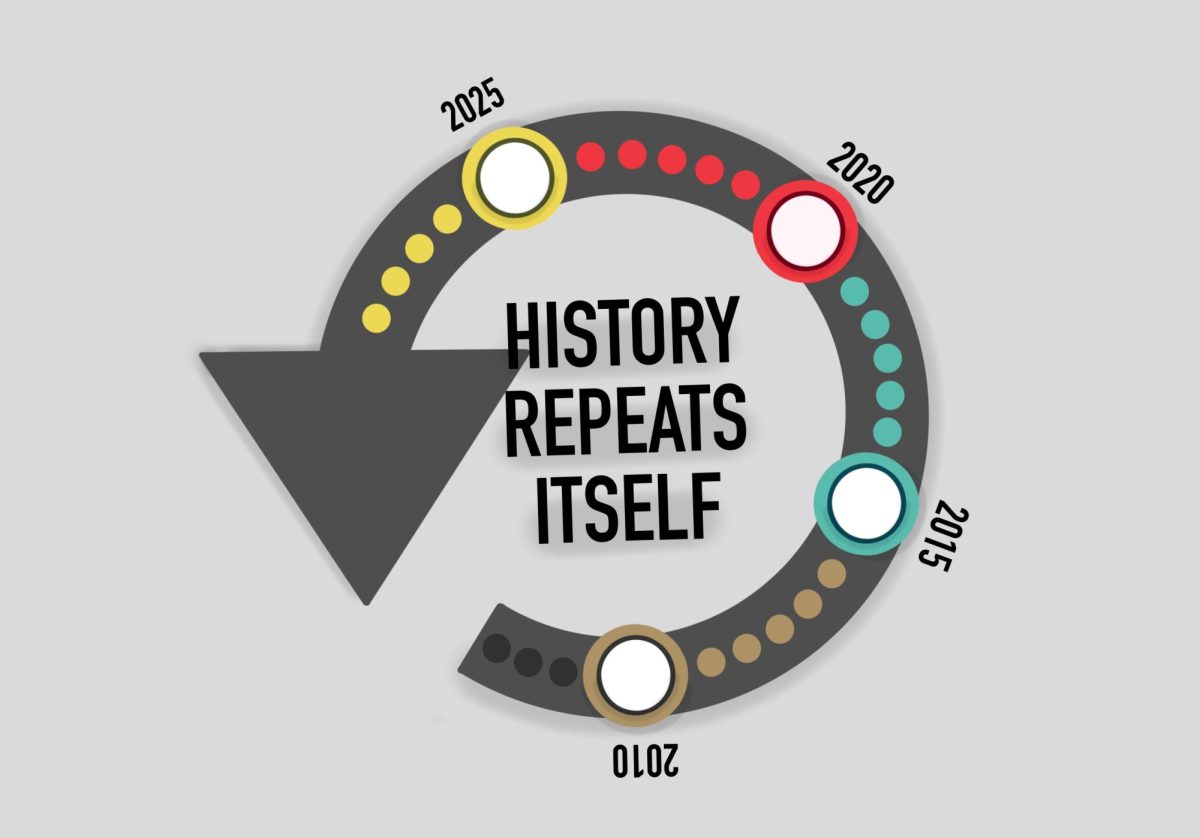Brooks Koepka won the 2023 PGA Championship on May 21 by two shots over his competition. His third time winning the tournament, and fifth major championship in total, the Sunday further cemented Koepka as one of the top golfers in the world.
Three weeks later, Koepka and several other golfers, including Phil Mickelson and Dustin Johnson, experienced another major win when the PGA Tour announced its intention to merge with Saudi Arabia-backed LIV Golf.
Criticized by many as an effort to “sports wash” the public image of Saudi Arabia, the golfers who defected are accused of helping downplay the poor treatment of ethnic, religious and other minority groups; attacks on free speech; war crimes and, most known to the public, the murder of Washington Post journalist Jamal Khashoggi.
Founded in 2021, LIV Golf emerged onto the scene with financing from the Public Investment Fund (PIF), Saudi Arabia’s sovereign wealth fund. The league has spent hundreds of millions of dollars in signing bonuses to attract the sport’s biggest stars, like Koepka, away from the PGA tour, hoping to host fan-friendly all-star-packed tournaments with rock concert vibes and less stringent dress codes.
The merger came as a shock to many. For more than a year the two sides have engaged in countless lawsuits, counter lawsuits and public spats. However, even without fully published details about the merger, ex-post analysis of the situation clarifies why it finally went through.
For one, the PGA and LIV have been intertwined in a series of lawsuits and counter-lawsuits that exposed the PGA to a potential investigation by the Department of Justice over illegal monopolistic behavior and threatened Yasir Al-Rumayyan, the governor of the PIF, with deposition by the PGA in court.
“They are much more worried about sort of the precedent it sets. If this is going to make it much easier for others to drag other people in Saudi Arabia who are sort of nominally part of the government but are doing things on behalf of other organizations. Are they going to be able to pull them into court much more easily?” said Kevin Draper, a reporter for The New York Times.
The PIF has managed to keep a blurred relationship between itself and the Saudi Crown, largely by ducking formal legal inquiry. Putting Al-Rumayyan on the stand to testify threatens the Saudi government’s ability to influence the actions of the wealth fund without a public reaction.
By cutting a deal with one of the contingencies being both sides dropping their lawsuits, each side limits their exposure to various legal ramifications that could result from ongoing courtroom battles.
Additionally, neither side is in ideal economic shape to endlessly escalate their differences.
If the fight between the PGA Tour and LIV Golf was seen as an arms race, it would be akin to a squirt gun going up against an Abrams tank. The PIF, with a $600 billion war chest, trounces the PGA’s $2 billion annual revenue, which is heavily dependent on inflexible contracts.
“The PGA Tour, their biggest revenue driver was a television deal,” Draper said. “They signed a television deal in 2020. It goes through like 2030. They don’t get to renegotiate that, so their money is set.”
However, the PIF is experiencing its own financial woes. LIV tournaments have so far been a flop. With no TV deal, court filings showed LIV failed to generate any sizable revenue in 2022. While the PIF has managed to strike a TV deal since then, it is with the CW.
Not exactly a slam dunk.
“They reported ratings for their first two tournaments,” Draper said. “They were not good. Not a lot of people watch. And then they just stopped reporting ratings.”
As it stands, the CW’s primetime hour consists of “Whose Line Is It Anyway,” “Nancy Drew” reruns and “World’s Funniest Animals.” Probably not the pedestal the PIF had in mind to showcase their gold-plated golf tournaments.
“Perhaps these unmeasured tournaments have been going gangbusters. But it’s usually a rule that if you do not report TV ratings, your TV ratings are bad,” Draper said.
All of this leads us to an uncomfortable truth: for all the public blustering and posturing, the roadblocks surrounding this deal have nothing to do with any concerns over human rights abuses. The outrage over reshuffling the world of golf is about saving face and downplaying the broader role Saudi Arabia plays in American society.
Thomas Friedman, an author, columnist and former cheerleader of Prince Mohammad bin Salman (MBS), whom he called a “modernizer” of Saudi Arabia in 2017, made his disapproval of LIV Golf’s “sports washing” efforts known last year. In a hyperventilative piece, Friedman makes an oddly compassionate plea with MBS to leave the PGA Tour alone and focus on reforming his country to better itself from within.
Why the change?
To be fair to Friedman, at the time of his MBS puff piece, Jamal Khashoggi had not yet been brutally murdered and dismembered at the Saudi consulate in Turkey, a development he does acknowledge in his rebuke of LIV Golf.
However, Saudi Arabia’s human rights abuses predate Khashoggi’s murder and their influence in the American economy and mass culture operates well outside the realm of golf. For nearly a decade the United States has unquestionably sold Saudi weapons to the tune of tens of billions of dollars.
In one of the most brutal wars in recent memory, Saudi Arabia’s actions in Yemen have led to an unprecedented humanitarian crisis in the world and prompted accusations of war crimes. Additionally, and even less well known, is the increasingly mounting evidence of Saudi knowledge and potential material support for the individuals involved in the 9/11 terrorist attacks.
Additionally, Saudi Arabia’s influence in the realm of American business stretches well off the course. The PIF, outside of LIV Golf, owns tens of billions of dollars in equity positions in companies like Amazon, Microsoft, Alphabet, Home Depot, Costco and J.P. Morgan (at no point did concerns over human rights abuses come up in their earnings calls).
LIV Golf is not an unprecedented invasion of an American institution, but simply an incendiary and bold-faced interjection of Saudi influence in our hemisphere. So much so that Saudi Arabia fanboys such as Thomas Friedman felt the need to denounce the new league and, even more daringly, the several golfers who were willing to participate in it.
The new obsession over LIV Golf and its merger with the PGA Tour is not over concerns of human rights abuses or “sports washing” by theocratic dictators such as MBS.
In truth, when human rights abuses are confined to the Gulf states and business dealings are done through a broker in a smoke-filled room, MBS is called a modernizer and Saudi Arabia is a thriving ally.
However, when Khashoggi is murdered and LIV Golf takes over the PGA, the problem is now on home turf and talking heads suddenly scramble to look for a scapegoat to downplay America’s problematic relationship with Saudi Arabia.
Give credit to the golfers who stayed true to the PGA, such as Tiger Woods, Rory McIlroy, Scottie Scheffler and Justin Thomas, among others who turned down top-dollar offers to join LIV Golf.
However, treating Brooks Koepka like Benedict Arnold for signing a blank check from the PIF makes Saudi Arabia’s sphere of influence appear confined to the world of golf, obfuscating America’s relationship with the repressive regime more than “sports washing” ever could.














